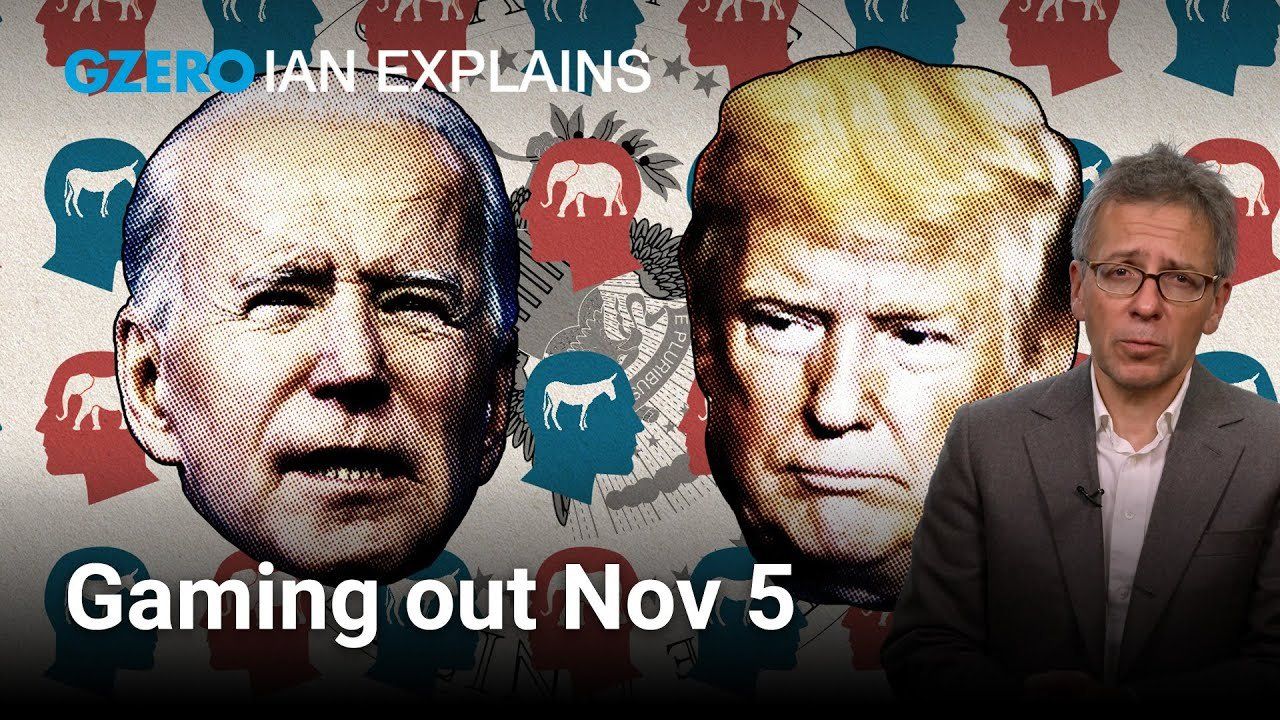popular
Ian Explains: Gaming out the 2024 US election

Ian Explains: Gaming out the 2024 US election | GZERO World with Ian Bremmer

A quarter of Americans believe that the FBI was behind January 6. But as the late New York Senator Daniel Patrick Moynihan once said, “You’re entitled to your own opinions, but you’re not entitled to your own facts.” The fact is that President Trump incited the insurrection.
Shared trust amongst Americans is at an all-time low. Public trust in core institutions—such as Congress, the judiciary, and the media—is at historic lows; polarization and partisanship are at historic highs.
And what if the world’s most powerful country cannot hold a free and fair election on November 5? Unlikely but plausible. Efforts to subvert the election could come from cyberattacks, deep fakes and disinformation, physical attacks on the election process and oversight, and/or even terrorism to disrupt voting on the day. There’s no more geopolitically significant target than the upcoming ballot—with plenty of foreign adversaries that would love nothing more than to see more chaos from the Americans.
The United States is already the world’s most divided and dysfunctional advanced industrial democracy. The 2024 election will exacerbate this problem no matter who wins. With the outcome of the vote essentially a coin toss (at least for now), there's no certainty in predicting who comes out on top. But just how we make that choice will determine if democracy, itself, wins or loses.
With close ties to both the US and China, can Singapore survive in an increasingly fragmented and chaotic world? Singapore’s President Tharman Shanmugaratnam joins Ian Bremmer on the GZERO World Podcast.
Think you know what's going on around the world? Here's your chance to prove it.
This week, Prime Minister Keir Starmer became the first UK leader to visit China in eight years. His goal was clear: build closer trade ties with Beijing.